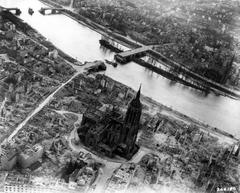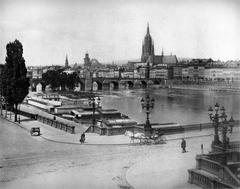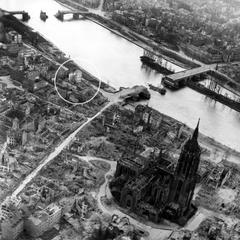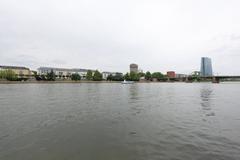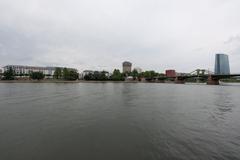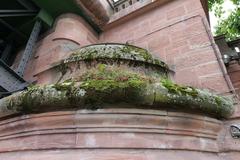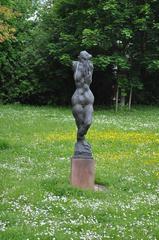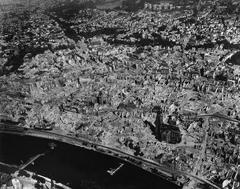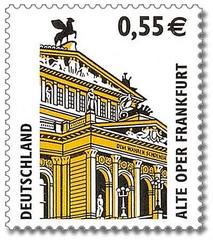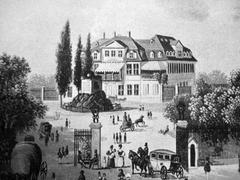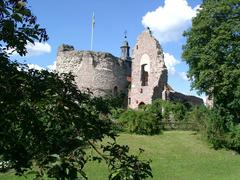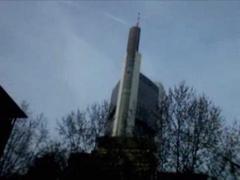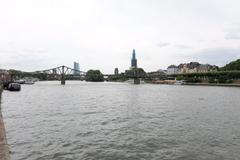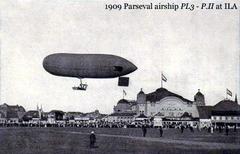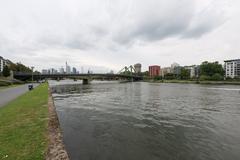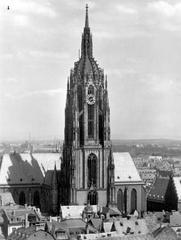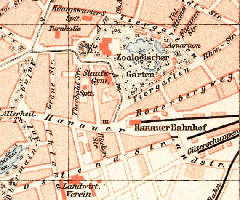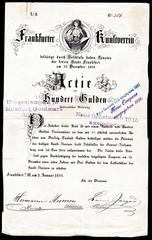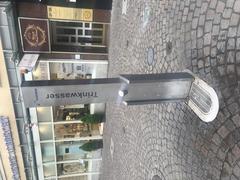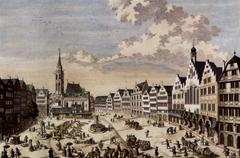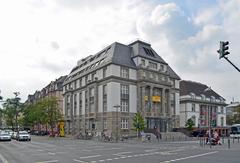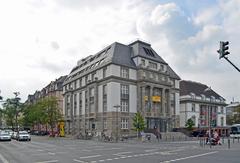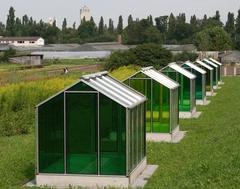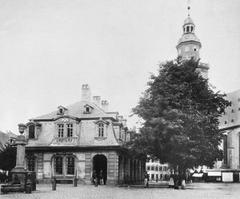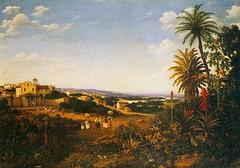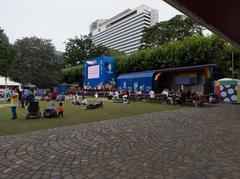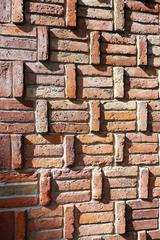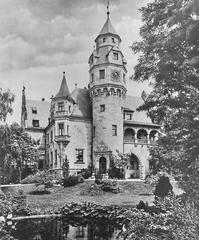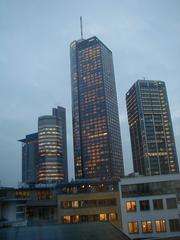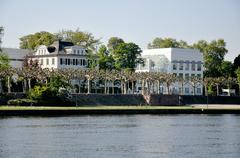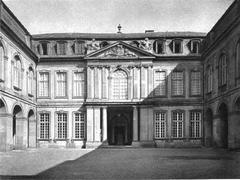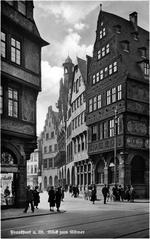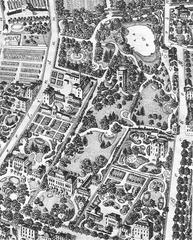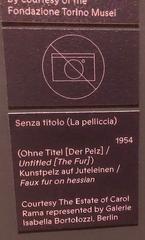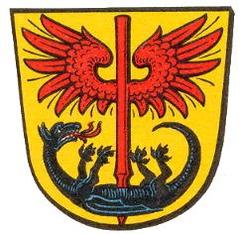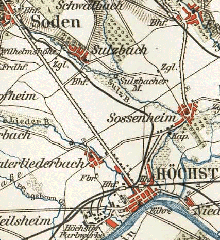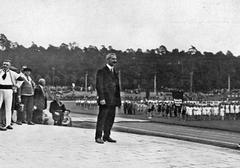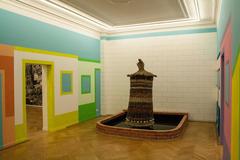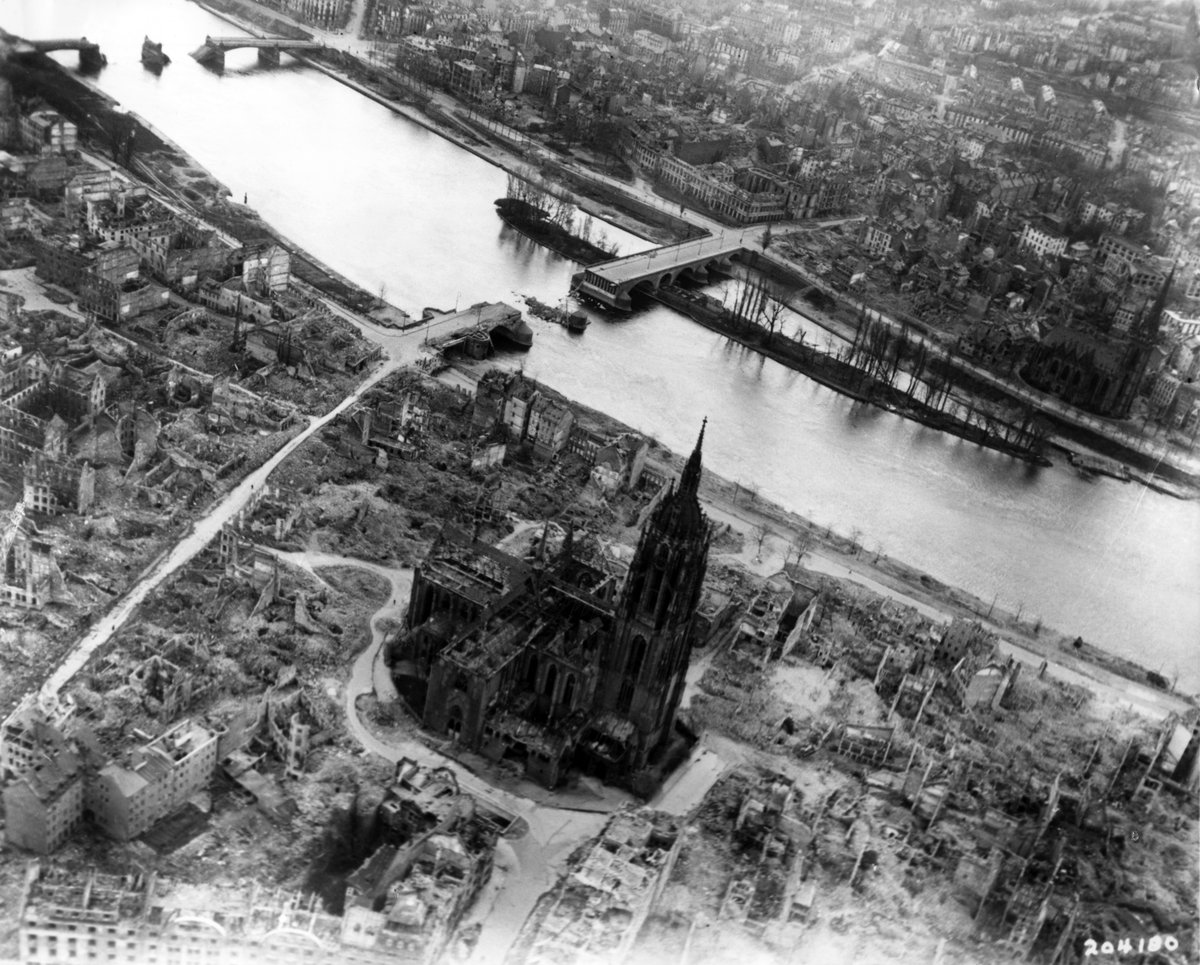
Visiting Hours and Ticket Information for Ignatz-Bubis-Brücke, Frankfurt am Main: A Comprehensive Guide
Date: 20/07/2024
Introduction
The Ignatz-Bubis-Brücke in Frankfurt am Main, Germany, is not just an architectural structure but a poignant symbol of the city’s historical resilience, cultural diversity, and architectural innovation. Connecting the districts of Sachsenhausen and Innenstadt, this bridge is a testament to the city’s ability to rebuild and reconcile after the devastations of World War II. Originally constructed in 1878 as the Obermainbrücke, the bridge has undergone numerous transformations, reflecting the socio-political changes in Frankfurt over the years (Frankfurt.de). Renamed in 1999 to honor Ignatz Bubis, a prominent Jewish leader and Holocaust survivor, the bridge stands as a memorial to his significant contributions to post-war German society and his efforts in fostering reconciliation (Jewish Museum Frankfurt). Today, the Ignatz-Bubis-Brücke not only facilitates daily commutes but also serves as an educational and cultural landmark, offering stunning views of the Main River and the Frankfurt skyline, making it a must-visit for both locals and tourists alike.
Table of Contents
- Introduction
- History of Ignatz-Bubis-Brücke
- Architectural Evolution
- Cultural and Social Significance
- Visitor Information
- Commemorative Events and Activities
- Photographic Spots
- Preservation Efforts
- Educational Importance
- Future Prospects
- FAQ
- Conclusion
Exploring the Ignatz-Bubis-Brücke - History, Visitor Information, and Cultural Significance in Frankfurt
History of Ignatz-Bubis-Brücke
Origins and Early History
Originally known as the Obermainbrücke, the Ignatz-Bubis-Brücke was constructed in 1878 to meet the growing transportation needs across the Main River. This iron structure was a testament to the industrial advancements of the late 19th century.
Destruction and Reconstruction
The bridge suffered extensive damage during World War II due to strategic bombings in 1945 aimed at crippling Nazi Germany’s infrastructure. It was reconstructed in 1949 with a modern design to support increased traffic and heavier loads.
Renaming to Ignatz-Bubis-Brücke
In 1999, the bridge was renamed in honor of Ignatz Bubis, a prominent Jewish leader and former chairman of the Central Council of Jews in Germany, recognizing his contributions to post-war German society and efforts in fostering reconciliation (Frankfurt.de).
Architectural Evolution
The Ignatz-Bubis-Brücke has undergone significant architectural changes, transitioning from an iron structure to a more robust steel and concrete design post-war. These changes have enhanced its durability and functionality, making it a notable landmark in Frankfurt.
Cultural and Social Significance
The bridge symbolizes Frankfurt’s resilience and progress in social integration and recognition of minority communities. Renaming the bridge in honor of Ignatz Bubis underscores its role as a symbol of unity and reconciliation.
Visitor Information
Visiting Hours and Ticket Information
The Ignatz-Bubis-Brücke is accessible 24/7 without any entrance fee, making it an ideal spot for both locals and tourists to visit at any time.
Travel Tips
- Best Time to Visit: Early mornings or late afternoons for picturesque views and fewer crowds.
- Getting There: Easily accessible by public transportation, including trams and buses.
- Nearby Attractions: Sachsenhausen district, Frankfurt Cathedral, and the Römer.
Commemorative Events and Activities
The bridge hosts various commemorative events, including memorial walks, educational tours, and cultural festivals, celebrating its historical significance and the legacy of Ignatz Bubis.
Photographic Spots
The Ignatz-Bubis-Brücke offers stunning views of the Main River and Frankfurt skyline, making it a popular spot for photography enthusiasts.
Preservation Efforts
Ongoing preservation efforts by the city of Frankfurt include regular maintenance and restoration projects to ensure the bridge remains in good condition and accessible to pedestrians and cyclists (Frankfurt City Council).
Educational Importance
The bridge serves as an educational resource, with schools and universities organizing field trips to learn about its history, cultural significance, and architectural evolution.
Future Prospects
Future infrastructure projects aim to enhance the bridge’s capacity and functionality, integrating smart technologies for improved traffic management and safety, ensuring it remains a vital part of Frankfurt’s urban landscape (Frankfurt Urban Planning).
FAQ
Q: Is there a fee to visit the Ignatz-Bubis-Brücke?
A: No, the bridge is accessible to the public free of charge.
Q: What are the best times to visit?
A: Early mornings and late afternoons offer the best views and fewer crowds.
Q: Are there guided tours available?
A: Yes, educational tours are often organized to highlight the bridge’s historical and cultural significance.
Conclusion
In summary, the Ignatz-Bubis-Brücke is a landmark of historical, cultural, and architectural importance in Frankfurt. Its evolution from the Obermainbrücke to its current form reflects the city’s journey through industrial advancements, wartime destruction, and post-war reconstruction. Today, it stands as a symbol of unity and reconciliation, attracting visitors from around the world.
Call to Action
Plan your visit to the Ignatz-Bubis-Brücke and explore more historical sites in Frankfurt. Follow us on social media for updates and download our mobile app Audiala for more travel tips and information.
References
- Exploring the Ignatz-Bubis-Brücke - History, Visitor Information, and Cultural Significance in Frankfurt, 2023, Frankfurt City Council (Frankfurt.de)
- Exploring Ignatz-Bubis-Brücke - Architectural Marvel and Historical Gem in Frankfurt, 2023, Structurae (Structurae)
- Exploring the Ignatz-Bubis-Brücke - Visiting Hours, Tickets, and Historical Significance in Frankfurt, 2023, Frankfurt Tourism (Frankfurt Tourism)
- Exploring the Ignatz-Bubis-Brücke - Visiting Hours, Tickets, and Historical Significance in Frankfurt, 2023, Jewish Museum Frankfurt (Jewish Museum Frankfurt)
- Exploring the Ignatz-Bubis-Brücke - Visiting Hours, Tickets, and Historical Significance in Frankfurt, 2023, Central Council of Jews in Germany (Central Council of Jews in Germany)
